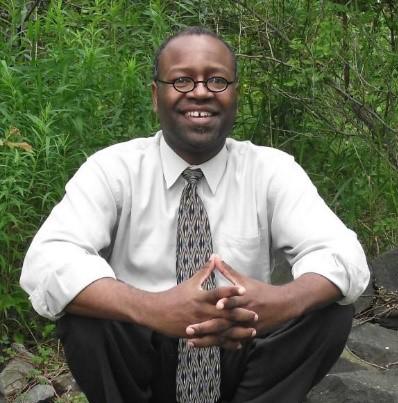KJIPUKTUK (Halifax) – Last week we had a long conversation with Robert Wright, one of the prominent African Nova Scotians to publicly call for a suspension of the practice of carding in the province.

Robert Wright is a sociologist and social worker in private practice whose 28-year career has spanned the fields of education, child welfare, forensic mental health, trauma, sexual violence, and cultural competence.
Wright and others wrote the letter in January, shortly after a Freedom of Information request established that Halifax Regional Police are three times more likely to stop Black individuals than white people. Nonetheless, carding continues while the Nova Scotia Human Rights Commission conducts an analysis of the data to determine if racial profiling is a factor.
We talked with Wright about why carding generates such anger among African Nova Scotians, the over surveillance of Black communities by police, the white indifference to the issue, how anger at police better be directed at politicians, and why carding is ineffective. More than anything we talked about racism.
In the Black community carding resonates with a history that is tragic and traumatic
Wright: The vast majority of middle class white people, including people in positions of authority, would never perceive police to be anything but their allies and protectors. It is sadly a part of the African Nova Scotian experience, both historically and contemporarily, that a police sighting is not necessarily good news. It is this perspective that is being missed in this discussion.
In the Black community carding resonates with a history that is tragic and traumatic. These interactions ignite even in the most privileged Black person this fear and antagonism that is a part of our history, informed by that history.
When the news broke that the stats around carding were out, and that it demonstrated that African Nova Scotians were dramatically over represented, it really fanned the flames. African Nova Scotians have long known that their communities are being over-policed. We have long felt that we have been ill treated by police in terms of over-surveillance and resulting criminalization of activities in our communities.
But for generations that anger was like a low grade fever. I say generations because there are people in the community that remember how in some parts of this province municipalities had sunset laws that said if you were Black you shouldn’t be in certain areas after dark. It was effectively a municipal curfew on Black people.
After the Kirk Johnson decision police were required to keep stats on the races of people that they stopped, and for a decade they did just that, without reporting even once. Here we are 11 years later and a reporter gets the data through Freedom of Information and realizes oh gosh, there is still a problem, and nothing has happened.
At that time this low grade anger really ignited, like a fire that had gone underground and was smoldering for a decade. People called for the elimination of carding, you have had a decade to figure this out and you did nothing, they said.
What’s wrong with carding?
We have lost the beat cop who knows all the kids in the neighborhood. In the absence of that you get surveillance, and the need to have this information kept and collated somewhere. Without judicial oversight that kind of surveillance is questionable as a practice.
The carding practice itself, as it has evolved in an very organized system of citizen surveillance, becomes icky. When you think that it disproportionately targets poor and Black communities it feels even ickier. When any people who have been historically disadvantaged and oppressed find themselves under scrutiny of the state that should give us even more reason for discomfort.
If you look at the crime data you can see that the crime hot spots tend to be in lower socio-economic regions. That’s also where Blacks are over represented. So is the disproportionality of Black carding the act of racism, or is it evidence that racism exists because more Black people are structurally impoverished? I say it is mostly the latter. As much as carding in itself is an indignity, it is also evidence of the existence of systemic racism.
The police are simply the physical manifestation of the will of the leaders of our municipality.
When something like a curfew law is on the books, it isn’t the town fathers who chase people from one part of the town, it’s the local police. Police have been the pointed edge of the wedge where Black folk feel the oppression of the state, whether it is provincial, federal or municipal. The police are simply the physical manifestation of the will of the leaders of our municipality.
I have gone on record to say that the Chief is our ally, he is not the enemy. I say that because I don’t believe our chief of police is a foaming at the mouth racist who is hell bent on oppressing the Black community. I’d say he is an individual caught between the justified concerns of the Black community and the sensibilities of the paramilitary organization of which he is the head.
If we say the police interactions with the Black community are the problem, than the city fathers are off the hook. “This is a problem for the police,” says the Mayor, but mister Mayor, how come poverty continues to exist in these areas in the city? That is not the police’s fault, that is your fault.
The chief’s policing is based on the political direction he is given by the three levels of government, and what is important in terms of justice and safety is a political decision. So for the Premier and the Mayor to say this is the Chief’s issue is a complete and full abdication of their responsibilities.
Neither the Chief, nor the Mayor, nor the Premier recognize, the symbolic power that they would wield by choosing`to stop the process of carding, by saying, hey we don’t understand it but individuals in the Black community tell us this is an affront that must be addressed quickly. So we are going to suspend the process until we figure out a different way. Would the civic safety go to hell in hand basket if they suspended carding tomorrow? No, it wouldn’t.
White privilege is the luxury not to care
The very foundation of the concept of white privilege is the luxury not to care. A white person wakes up in the morning, turns on the radio, and hears about some shooting, they will shake their head, and continue on their business because it doesn’t touch them.
In one sense white privilege is the luxury not to have to turn your mind to the things that affect poor and Black people disproportionately. Unfortunately municipal and provincial politicians have not learned that by virtue of their election they must abdicate their white privilege. It is still possible to be a white provincial or municipal politician and remain ignorant of the issues affecting Black people.
Black people do not want to police each other into deeper problems
In the early nineties I was a member of the Mayor’s Task Force on Drugs. Crack came along in the eighties, there was a real problem, and one of the initiatives was to promote Crime Stoppers in the community as a way to engage the community.
When that idea came along I said, OK I am out! You can put a poster at the corner of Robie and Inglis that says call 422-tips, if you see a crime call this number, but you can’t put a sign like that on Uniacke and Gottingen. You are asking people to drop a dime on their children, their siblings, their spouses, and that doesn’t work.
Again, the presence of the commercial enterprise of drugs is a result of the disproportionate collapse of the economy for particular peoples, and these people want to help each other out of the problem, they do not want to police each other into deeper problems. These were white people thinking about the problem of drugs and offering a solution that was really a white informed solution, And the same thing is true for carding.
The other thing is that in the face of the murders that have been happening here, where Black people are over represented`, one of the complaints is that we can’t get anyone to talk to us. That is directly related to the lack of relationships between the policing community and the Black community.
You cannot participate in racially disproportionate profiling, have the Human Rights Commission clearly order that you keep stats about it, and then keep the stats but do absolutely nothing. You can’t say that that despite Black objections you refuse to suspend the practice of carding, and at the same time say that the Black community does not cooperate with you to help solve major crimes.
If you can, please support the Nova Scotia Advocate so that it can continue to cover issues such as poverty, racism, exclusion, workers’ rights and the environment in Nova Scotia. A pay wall is not an option since it would exclude many readers who don’t have any disposable income at all. We rely entirely on one-time donations and a tiny but mighty group of kindhearted monthly sustainers.




After the nonsensical police stop of Kirk Johnson, I used an incident to demonstrate to my kids the privilege we whites enjoy. A cop stopped to ask me what I was doing sitting in my parked car, outside Point Pleasant Park. I told him that he had no right to ask me any questions and when he persisted, I became sarcastic with him. I could see the ire building but, since I was a middle aged, middle class, white man he gave it up and left. Of course, I warned them that as young people, they would not be allowed that much leeway.
Mr. Wright was once my counsellor due to personal issues it never worked out how I had thought but he sure did his best, I’m glad to see he used the information gathered from clients over the years to address the real issue and as I explained to him you can not counsel away racism or the fact that when a white male abuses a black or indigenous female it’s considered less of a crime or not one at all and the therapist have to listen to heart-wrenching stories but encourage people to somehow find the good in life a good example is I still call police officers sir as did my parent’s grandparents and great grandparents but very few whites in trouble with the law have ever done that and when I acted like the whites I was strapped to a chair, had my mouth covered and hair pulled upon investigating themselves they decided they were in the right
Serrece Winter